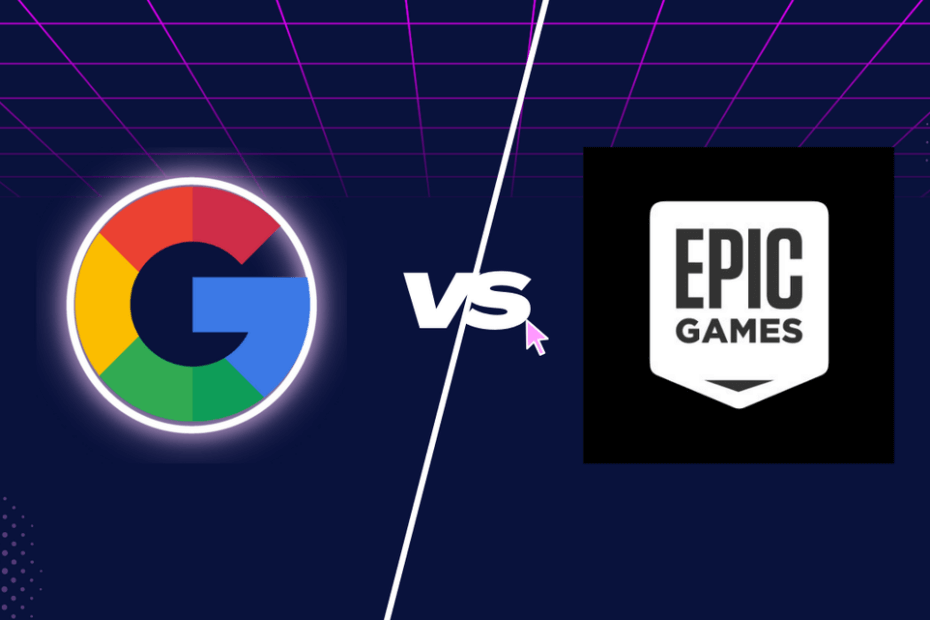A new app store competition era particularly for Android smartphones, a U.S. District Court has significantly moved in a historic decision toward restructuring the mobile app market. Following a lawsuit started by Epic Games, Google is now under orders to destroy numerous important components of its app store business, therefore increasing competitiveness and changing how users access apps and pay on Android. With long-term consequences for developers, device manufacturers, and consumers both now and going forward, this ruling represents a turning point in the continuous fight against monopolistic behavior in the tech sector.
Key Learnings from the Epic Games Lawsuit
Allegations of monopolistic control over the Android app distribution and the payment methods inside those apps dominated the case against Google. Creator of the well-known game Fortnite, Epic Games said Google was limiting competitiveness by:
- Mandating the usage of Google Play Store for Android app downloads.
- Requiring in-app purchases handled just through Google’s payment system, which charges a hefty commission on transactions.
A jury decided in December 2023 that Google’s actions amounted to illegal stifling of competition, therefore supporting Epic Games. The result of this legal fight is an injunction forcing Google to modify its policies and open the market for app developers more broadly.
Third-Party App Stores Permitted on Android
Presiding over the matter, Judge James Donato gave Google instructions to let consumers download and install apps from outside app stores on Android devices. This action seeks to challenge Google’s hegemony over app distribution thereby enabling other developers and retailers to engage on a more level playing field.
Why It Matters
Google used its Play Store to regulate terms for app developers, therefore maintaining almost complete control over the distribution of Android apps until lately. Third-party shops will provide developers more control on how they promote and distribute their products. Conversely, consumers will have more access to a larger spectrum of app options.
In-app payment systems have to be open
The injunction also forbids Google from making app developers use its own payment system. Developers will be able to use alternate payment methods for the next three years, therefore avoiding the fees Google usually levies for in-app transactions.
Why It Matters
By avoiding Google’s fees, app developers can provide less expensive pricing for in-app purchases. While developers might see more margins from in-app purchases, consumers stand to gain from lowered pricing.
Preinstallation Strategies and Revenue Sharing Restricted
Long under attack for restricting competition, Google is also prohibited from bribing device makers to preinstall its Play Store on Android smartphones. Moreover, the decision prevents Google from giving other app distributors Play Store-generated income in return for preferred treatment.
Reason It Matters
This clause seeks to level the playing field for other app shops and delivery systems. More varied products in the app market could follow from this, therefore fostering a more competitive ecosystem for developers and users alike.
Google’s Reaction and Scheduled Appeal
Google intends to fight the decision and has strongly objected to the injunction, even although it has promised to follow it. Google contends that the court’s mandated adjustments could have unexpected effects, especially with relation to security and privacy. In its statement, the business said:
“Ultimately, while these changes presumably satisfy Epic, they will cause a range of unintended consequences that will hurt American consumers, developers, and device makers.”
Hoping to postpone the execution of these changes while its appeal is under consideration, Google is seeking a stay of the ruling from the U.S. Court of Appeals for the Ninth Circuit.
The response from Epic Games
Celebrating the verdict as a major victory for app makers and digital market competition, Epic Games has Sharing his excitement, CEO Tim Sweeney went on social media platform X (previously Twitter) saying:
“This is quite important. App developers, store builders, and others now have three years to create a dynamic and competitive Android ecosystem with such critical mass Google cannot stop.”
Sweeney’s remark captures the hope many in the IT sector have for this decision to result in long-lasting changes in the distribution and monetizing policies of mobile apps.
Looking forward for Google and the tech sector
The larger IT sector is keeping close eye as Google gets ready to contest the decision. This action fits a bigger string of legal problems Google faces, including another complaint on its advertising technology methods and a well-publicized antitrust trial over its control in web search.
This decision has consequences outside Google and Epic as well. It tells other internet behemoths that monopolistic influence over digital ecosystems will be under further scrutiny. It also enables rivals and innovators to advocate more equitable market treatment.
A Turning Point in App Store Competition
The decision against Google marks a crucial first toward increased competitiveness in the mobile app sector. The court has created a precedent that might be echoed throughout the tech sector by allowing Android to third-party app stores and alternative payment mechanisms. Google intends to appeal, but app developers, device makers, and customers all will immediately feel the impact of the decision.
The balance of power in the digital ecosystem could change as the case develops, encouraging an environment that supports consumer choice, innovation, and competitiveness. The next few years will be pivotal in deciding whether Google’s appeal will maintain its commanding dominance in the mobile app business or whether these developments will produce a really competitive scene.
About Remunance
Remunance is an Employer of Record (EOR) services provider in India, helping global companies hire, manage, and support full-time employees without setting up a local entity. We take care of HR, payroll, compliance, and benefits so businesses can focus on growth while building their teams in India with confidence.
Remunance enables businesses from UK, Australia, Canada, France, US, and the Middle East to recruit, hire, and manage workforce and benefits in India.

